John Quincy Adams - John Quincy Adams: Diaries 1821-1848
Here you can read online John Quincy Adams - John Quincy Adams: Diaries 1821-1848 full text of the book (entire story) in english for free. Download pdf and epub, get meaning, cover and reviews about this ebook. year: 2017, publisher: Library of America, genre: Science. Description of the work, (preface) as well as reviews are available. Best literature library LitArk.com created for fans of good reading and offers a wide selection of genres:
Romance novel
Science fiction
Adventure
Detective
Science
History
Home and family
Prose
Art
Politics
Computer
Non-fiction
Religion
Business
Children
Humor
Choose a favorite category and find really read worthwhile books. Enjoy immersion in the world of imagination, feel the emotions of the characters or learn something new for yourself, make an fascinating discovery.

- Book:John Quincy Adams: Diaries 1821-1848
- Author:
- Publisher:Library of America
- Genre:
- Year:2017
- Rating:4 / 5
- Favourites:Add to favourites
- Your mark:
John Quincy Adams: Diaries 1821-1848: summary, description and annotation
We offer to read an annotation, description, summary or preface (depends on what the author of the book "John Quincy Adams: Diaries 1821-1848" wrote himself). If you haven't found the necessary information about the book — write in the comments, we will try to find it.
The diary of John Quincy Adams is one of the most extraordinary works in American literature. Begun in 1779 at the age of twelve and kept more or less faithfully until his death almost 70 years later, it is both an unrivaled record of historical events and personalities from the nations founding to the antebellum era and a masterpiece of American self-portraiture, tracing the spiritual, literary,
and scientific interests of an exceptionally lively mind. Now, for the 250th anniversary of Adamss birth, Library of America and historian David Waldstreicher present a two-volume readers edition based for the first time on the original manuscript diaries, restoring personal and revealing passages suppressed in earlier editions.
Volume 2 opens with Adams serving as Secretary of State, amid political maneuverings within and outside James Monroes cabinet to become his successor, a process that culminates in Adamss election to the presidency by the House of Representatives after the deadlocked four-way contest of 1824. Even as Adams takes the oath of office, rivals Henry Clay, his Secretary of State, John C. Calhoun, his vice president, and an embittered Andrew Jackson, eye the election of 1828. The diary records in candid detail his frustration as his far-sighted agenda for national improvement founders on the rocks of internecine political factionalism, conflict that results in his becoming only the second president, with his father, to fail to secure reelection. After a short-lived retirement, Adams returns to public service as a Congressman from Massachusetts, and for the last seventeen years of his life he leads efforts to resist the extension of slavery and to end the notorious gag rule that stifles debate on the issue in Congress. In 1841 he further burnishes his reputation as a scourge of the Slave Power by successfully defending African mutineers of the slave ship Amistad before the Supreme Court. The diary achieves perhaps its greatest force in its prescient anticipation of the Civil War and Emancipation, an object, as Adams described it during the Missouri Crisis, vast in its compass, awful in its prospects, sublime and beautiful in its issue.
John Quincy Adams: author's other books
Who wrote John Quincy Adams: Diaries 1821-1848? Find out the surname, the name of the author of the book and a list of all author's works by series.

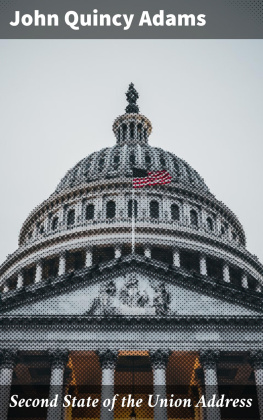
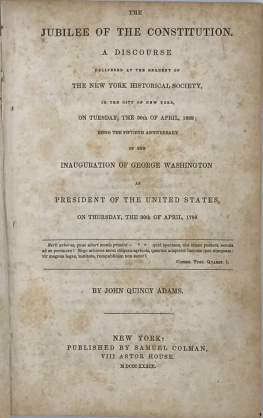
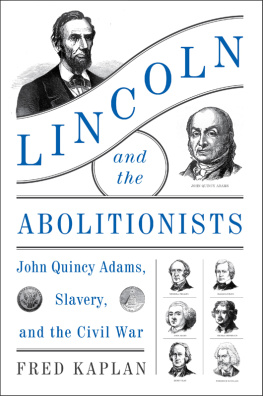
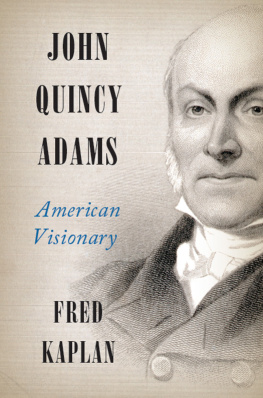
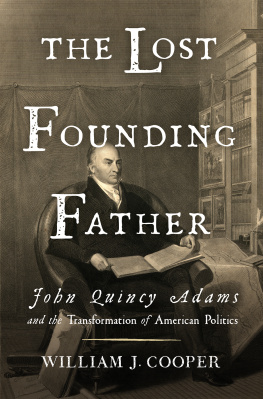

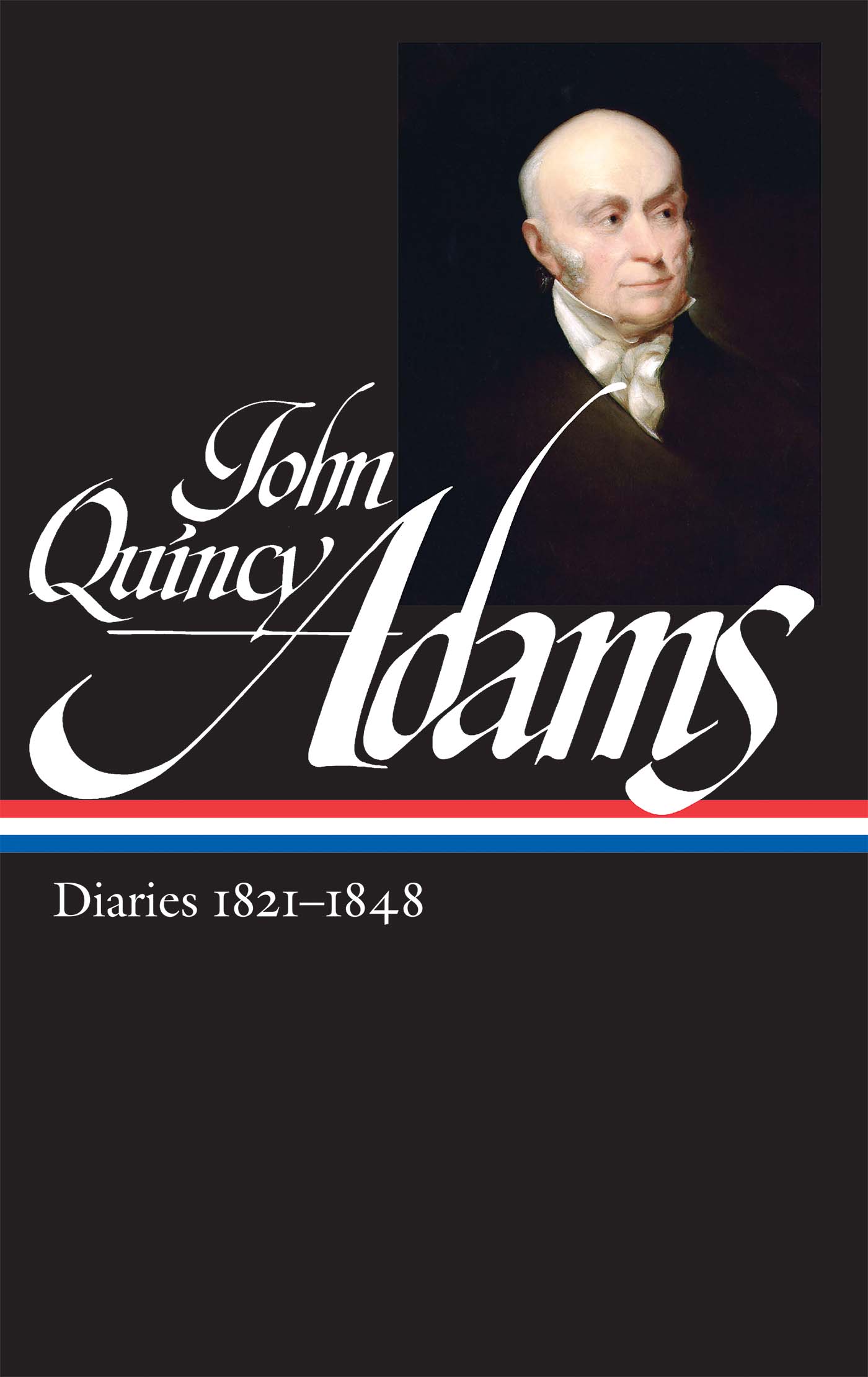
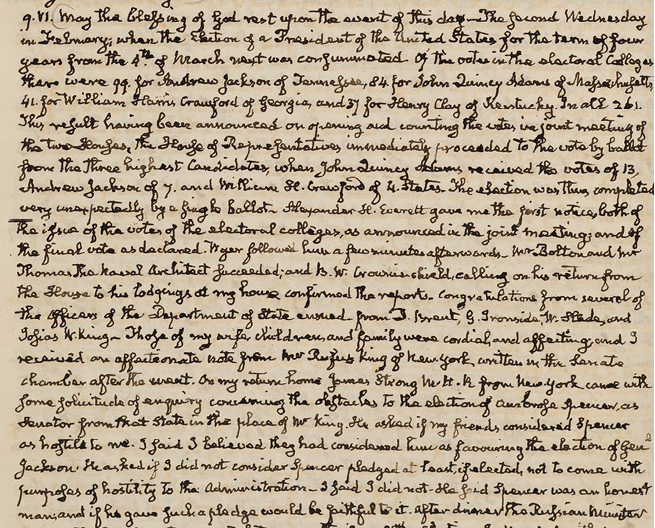
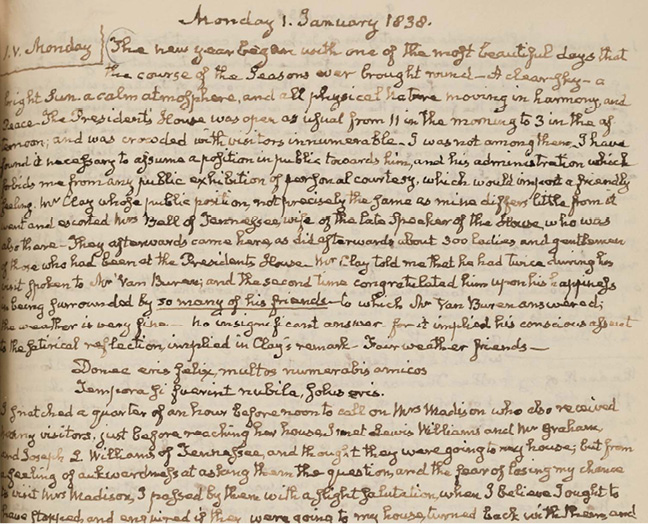

 18211825
18211825